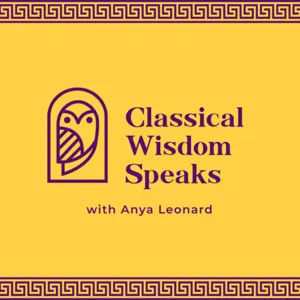Experience Ancient Music with a Full Reconstruction

Are you ready to take on a musical journey from the Patagonian Mountains that will immediately transport you to the ancient world? This is a podcast unlike any you have heard before...
We know the importance of music in ancient Greece; the backdrop to every ceremony, festival and religious endeavor it also accompanied dinners, symposiums, and literature itself. Indeed, the plays and poems we love so dearly were all sung...
But what did ancient music sound like? What instruments and melodies did they use? And how can we reconstruct these ancient sounds today?
Today’s Classical Wisdom Speaks podcast is with Argentine luthier and musician Alberto Magnin and Classical Wisdom’s former editor, Kristin Deasy; they will take you on an investigation of ancient instruments that will deepen your cultural understanding of the ancient world, bringing sound to history.
Best of all, Alberto and Kristin will perform ancient melodies on ancient instruments... immediately transporting you to another time and place.
To learn more about Classical Wisdom Speaks, please go to https://classicalwisdom.substack.com
You can find Alberto Magnin’s music on:
Sound Cloud - https://soundcloud.com/albertomagnin
Apple music - https://music.apple.com/ar/artist/alberto-magnin/904106327
Spotify - https://open.spotify.com/artist/63Vv31lt7Bh3kIRUlEcWVC
Youtube - https://www.youtube.com/channel/UChNkl3qhlnjMhphWGyTNixw

